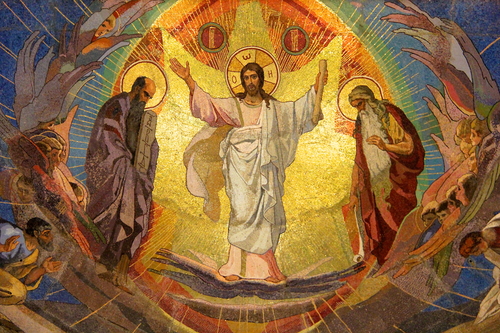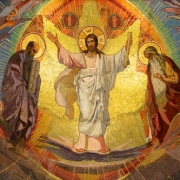En el nombre de Jesús
Y por la fe en su nombre, a éste, que vosotros veis y conocéis, le ha confirmado su nombre; y la fe que es por él ha dado a éste esta completa sanidad en presencia de todos vosotros. (Hechos 3:16)
Mientras Pedro predicaba a la multitud emocionada, sintió que tenía que explicarles cómo fue realmentesanado el hombre. Después de todo, este era un hombre que probablemente era un mendigo muy conocido en los patios del templo. No sabemos si era del agrado de todos, pero después de mendigar en el mismo lugar durante muchos años, probablemente era muy conocido. Cuando alguien que no podía caminar, ahora caminaba, saltaba y alababa a Dios (Hechos 3: 8), esto demandaba una explicación.

Pedro les dijo cómo fue sanado el hombre – en el nombre de Jesús: Y por la fe en su nombre, a éste, que vosotros veis y conocéis, le ha confirmado su nombre. Pedro dijo que fue en el nombre de Jesús que este hombre fue sanado. Jesús era la razón por la que podía caminar, saltar y alabar a Dios.
Decir, por la fe en su nombre significa más que el que Pedro haya dicho las palabras “en el nombre de Jesús”. Mucha gente tiene la costumbre de terminar su oración con las palabras “en el nombre de Jesús”. Esto se basa en la promesa que Jesús hizo registrada en Juan14:13-14:Y todo lo que pidiereis al Padre en mi nombre, lo haré, para que el Padre sea glorificado en el Hijo.Si algo pidiereis en mi nombre, yo lo haré.
Pero hacer algo “en el nombre de Jesús” significa mucho más que solo decir esas palabras al final de nuestra oración. Para Pedro, significaba que lo había hecho conscientemente (Hechos 3: 1-7) con la autoridad y el poder de Jesús, no con la autoridad y el poder de Pedro. De hecho, Pedro ni siquiera se atribuiría el mérito de la fe que se ejerció en la sanación (y la fe que es por él ha dado a éste esta completa sanidad en presencia de todos vosotros).
En el pensamiento bíblico, un nombre no solo es algo que llamas a alguien. El nombre puede expresar la naturaleza o el carácter de una persona. En cierto sentido, el poder de una persona está presente en su nombre y su carácter está disponible en el nombre de la persona.
Pedro insistió en que este milagro fue hecho por la fe en su nombre. Este debería ser un modelo para nosotros en nuestra vida para Dios. Cuando nosotros, como pueblo de Dios, realmente hacemos el bien en este mundo, debemos hacerlo por la fe en su nombre. Siempre estamos tentados a hacer las cosas confiando en algo o en alguien más.
– A menudo confiamos en las buenas intenciones.
– A menudo confiamos en talentos y dones.
– A menudo confiamos en los recursos materiales.
– A menudo confiamos en la reputación y el éxito anterior.
– A menudo confiamos en el trabajo duro o en el trabajo inteligente.
En cambio, siempre debemos confiar y hacer el bien por la fe en su nombre.
Hoy, haga usted una elección: vivir y hacer el bien en el nombre de Jesús, no en el suyo propio.
Haz clic aquí para el comentario de David de Hechos 3



